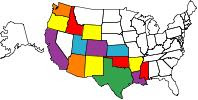.
Bible Study Topics
 “The Bible addresses so many topics that can answer our questions and help us now and in the future. What are some of the most important Bible study topics?
“The Bible addresses so many topics that can answer our questions and help us now and in the future. What are some of the most important Bible study topics?
The Bible is a tremendous resource and a wonderful gift from God! It’s been called an instruction manual for life, showing how our Creator designed us and how we should live for the best, eternal results.
Although the Bible is a great reference book, it is not like other books you may be familiar with. The Bible isn’t written like an encyclopedia, a dictionary or a textbook. It is composed of 66 shorter books written by dozens of people over about 1,500 years—yet they all have a unified message.
Reading the Bible book by book is an excellent way to get the big picture and overview of God’s entire message. There are many read-the-Bible-in-a-year programs and other programs that you can use for this. And, of course, you can create your own plan to read the Bible through.
But it is also very helpful at times to pick a Bible study topic and try to find sections of the Bible that address that subject or answer that question.
Picking a Bible study topic and beginning your study
Many times daily life gives us questions and topics that we want answers to, and these make excellent Bible study topics. But sometimes we aren’t exactly sure what would be helpful to study, and we would like to pick from a list of Bible study topics. If that is what you are looking for, we hope the 150 topics below will be a helpful starting place for you.
Once you have a topic, you still need a method for finding the relevant passages about that topic in your Bible. Concordances and topical Bibles can help. A concordance allows you to look up every time a word related to your topic is used in the Bible. Online and electronic concordances also let you search for combinations of words or a phrase.
Topical Bibles are put together to group relevant passages together. These can be helpful, but keep in mind that they generally won’t include every possible Bible passage and will reflect the background and doctrinal beliefs of the people who compiled them.
See our article about “Bible Study Tools” for more information about how to use a concordance and other tools. You might also find it helpful to search our site about the topic you are interested in.
150 Bible study topics
Here are 150 Bible study topics and questions to get you started, grouped around the six topic areas we felt were so important we needed to highlight them on this website.
Each topic listed below is also covered in one of the biblical articles on this Life, Hope & Truth website. Just type the topic into the search bar at the top left of the web page (https://lifehopeandtruth.com/bible/bible-study/bible-study-topics/?) and you’ll find helpful material with many related Bible references.
- Is there a God?
- Are God and science compatible?
- Can Christians believe in evolution?
- Is God really concerned for me?
- What are the names of God?
- What does the fear of the Lord mean?
- How can I please God?
- What’s God’s will for me?
- Who is Jesus?
- Was Jesus created?
- Why did the wise men bring gifts to Jesus?
- What do we know about Jesus’ childhood?
- What were the seven last sayings of Jesus?
- What was the transfiguration of Jesus?
- What is the Holy Spirit?
- What is spirit?
- How can I grow in the fruit of the Spirit?
- How should we pray?
- Does God answer prayers today?
- What is intercessory prayer?
- Why pray “Thy kingdom come”?
- What does it mean to pray without ceasing?
- What is fasting?
- What is meditation?
Bible study topics about the Bible
- Is the Bible true?
- Is the Bible full of contradictions?
- What is truth?
- Who wrote the Bible?
- What is the background and outline of the individual books of the Bible?
- Is the Old Testament relevant?
- What can we learn from the imprecatory Psalms?
- How can we learn to be wise?
- What was the chronology of Paul’s journeys and epistles?
- What are the 10 Commandments?
- Were the 10 Commandments around before Moses?
- Are the 10 Commandments upheld in the New Testament?
- Should a Christian avoid euphemisms for God?
- What does it mean that Jesus is Lord of the Sabbath?
- Did Paul change the Sabbath command?
- Is watching porn a sin?
- What do we need to know about the great commandment?
- Is the Bible relevant today?
- What are some encouraging Bible verses?
- What is the purpose behind the Bible stories?
- Where should you start reading the Bible?
- What is doctrine?
- How can we understand the Bible?
- What did Paul mean by the curse of the law?
- What are good works?
- What is the Old Covenant?
- What is new about the New Covenant?
Bible study topics about Life
- What is the meaning of life?
- Are we children of God now?
- What is predestination?
- Are we alone in the universe?
- Does God want us to celebrate the biblical festivals? Why?
- What is Passover?
- What is the sign of Jonah? Did Jesus die on Good Friday and rise on Easter?
- What does Pentecost mean?
- What happens to those who died without hope?
- Is God fair?
- Why does God allow suffering?
- How can we deal with grief?
- Why did God’s people go to war?
- Is there life after death?
- Do humans have an immortal soul?
- What is heaven?
- What is hell?
- What are the resurrections?
- What is the way of peace?
- How can we cast out fear?
- Could your love grow cold?
- What does the Bible say about crying?
- Is being a Christian easy or hard?
- How do we judge with righteous judgment?
- How can we bring every thought into captivity?
- What does the Bible say about being successful?
- What is the key to happiness?
- How can we be ambassadors of Christ?
Bible study topics about Prophecy
- What is the Kingdom of God?
- How will world peace come?
- What does the world need most right now?
- What do the parables of Jesus mean?
- What is the Great Tribulation?
- What is the Day of the Lord?
- Who is the beast?
- How do we avoid the mark of the beast?
- What is the abomination of desolation?
- What does the Bible say about the interpretation of dreams?
- How can we recognize the Antichrist?
- What is Armageddon?
- When will Jesus return?
- Why is our modern world under ancient curses?
- Where are we now in Bible prophecy?
- What is the purpose of prophecy?
- What are the promises to Abraham?
- Why did God choose Israel?
- What is the role of Jerusalem in prophecy?
Bible study topics about Change
- What is sin?
- What does the Bible say about anger?
- What is the unpardonable sin?
- What is justification?
- What is repentance?
- What is forgiveness?
- What should we do when forgiveness isn’t easy?
- What is baptism?
- What is conversion?
- What is faith?
- How can we grow in faith?
- What can we learn from the women of faith in the Bible?
- What are God’s promises?
- How can we deal with doubt?
- What is living faith?
- What is grace?
- What does it mean to be saved?
- What is the Church?
- Why are there so many world religions?
- What did Jesus mean by “narrow is the gate”?
- What did Jesus mean by “judge not”?
- How does temptation occur?
- What is the biblical name of the true Church?
- What is the mission of the Church?
- What kind of worship does God want?
- Who is the Bride of Christ?
Bible study topics about Relationships
- How do we speak the truth in love?
- What does the Bible say about gossip?
- When should you answer a fool?
- How should we fellowship?
- What does God expect of the unmarried?
- What does it mean to be equally or unequally yoked?
- What questions should you ask before getting married?
- How do great marriages work?
- What does the Bible say about marriage problems?
- How can we help our children build a relationship with God?
- How do we teach our children to honor the elderly?
- How do we teach our kids about money?
- How can we raise contented kids?
- How can we raise resilient kids?
- How can we build a strong family?
- How can we honor our parents as an adult?
- What is the biblical role of men?
- What is the biblical role of women?
- What does the Bible say about dealing with debt?
- What are biblical personal finance principles?
- What does the Bible say about gambling?
- What is tithing?
- What is divine healing?
- What does the Bible say about coping with anxiety?
- How can we be a good neighbor?
- How can we deal with difficult people?
- How can we deal with aging?
Other resources for Bible study topic ideas
Your daily life will likely give you many topics to study in your Bible, and these can be the most helpful Bible study topics!
But if you have run out of ideas and want more inspiration, here are some more resources:
All-Topics Page: This page lists all of the articles on our website, and new articles are being added regularly. As you look through the list, you are sure to find something that is relevant to you, something that you’ve wondered about or that would help you in your personal walk with God. The articles also will give you a starting place for your study. You can look up the passages mentioned and read more of the context in your Bible.
Weekly Newsletter: This link takes you to the subscription form for our weekly email newsletter. The newsletter features the new content on our website, including video commentaries, blogs and articles. We hope you’ll find at least one Bible study topic that grabs your interest in the newsletter each week.
Discern magazine: Our bimonthly magazine regularly covers a variety of biblical topics. We’d be happy to give you a free subscription to Discern. Digital subscriptions are available worldwide; print subscriptions are currently available in the United States, Canada and much of Europe.
Topical Bibles and Concordances: These Bible study tools can help you find the relevant passages once you have chosen your Bible study topics. However, scanning through them can also give you dozens of topics for your future study.
Bible study topics for youth
We also have resources geared toward young people and their parents. See the “Encourage, Equip & Inspire” section for dozens for useful Bible study topics for youth and parents.
See also the 47 Bible stories and coloring pages in our “Bible Stories” section.
Start now!
Finding Bible study topics might be challenging, but having too many to choose from can be daunting as well. Don’t let “analysis paralysis” keep you from starting. Hopefully several of the ideas in this article looked interesting and helpful to you. Pick one now and get started!
You may also want to start with this helpful overview article: “How to Study the Bible.”
Please let us know if you have questions or if we can help in any way.”
From: https://lifehopeandtruth.com/bible/bible-study/bible-study-topics/?
_______
Sugar Aches & Inflammation, By Darlene Kvist, MS, CNS, LN
“Yes, you read that right. Sugar-aches. I don’t mean the sugar lust that comes from the aroma of fresh brownies or the Blizzard-of-the-month sign at the Dairy Queen®. I mean what happens after you consume high-sugar foods that in turn create inflammation, aches and pain throughout your body; in other words, sugar-aches.
Do You Have Sugar-Aches?
This achy feeling may appear as stiff joints, achy muscles, migraines, added asthma or PMS symptoms. Chronic sugar-aches can lead to giving up your favorite pastimes such as golf, gardening, or other activities because you're in too much pain.
Let's back up. Where do your sugar-aches originate? They can come from a mocha and muffin at the coffee shop or maybe from a generous serving of pasta, or sub sandwich, at lunch. On the other hand, they may be from the hard to resist candy stash at your co-worker’s desk.
You're probably getting the picture ... sugar is hiding, in high amounts in many beverages and foods.
While you wouldn’t consume spoon after spoon of plain sugar, you may drink soda or eat popular foods that result in sugar-overload in your body without realizing it.
Here's a simple equation to see how much sugar you are actually consuming, beyond what's listed on the label. 4 grams of carbohydrates = 1 teaspoon of sugar in your body. When you check product labels, look for serving size so you can complete the equation for the amount of food or beverage you want to consume.
Sugar-Loaded Snacks to be Cautious of:
 Potato chips: A nine-ounce bag of chips breaks down into 32 teaspoons of sugar (most people can’t stop after four or five chips). If you wash down the chips with a soda, that’s another 16 or more teaspoons of sugar.
Potato chips: A nine-ounce bag of chips breaks down into 32 teaspoons of sugar (most people can’t stop after four or five chips). If you wash down the chips with a soda, that’s another 16 or more teaspoons of sugar.- Dots: One box of movie-theater sized Dots contains 5.5 servings. If you consume the whole box, you have eaten the equivalent of 48 teaspoons of sugar! (Maybe that’s the reason you are so stiff when you leave your seat at the end of the movie.)
- Blizzard: One small Dairy Queen Blizzard has 530 calories and 83 grams of carbohydrates, which equals 21 teaspoons of sugar. And that's a small size!
- One soda contains more than a day's healthy ration of sweetness.
This list is just a start to be cautious of. Read about even more with this Healthy Snacks Debunked post.
A Natural Solution to Sugar-Aches
Instead of relying on an endless supply of pain relievers to manage aches and pains, I have a better suggestion – start eating real foods and see how much better you feel. In 2002 the American Journal of Cancer Nutrition found that foods high in sugar resulted in inflammation. So the research, and 20+ years of clinical experience, have shown that food choices directly affect levels of pain and inflammation in the body.
As a nutritionist, I see clients’ lives change dramatically when they eliminate processed, high-sugar foods and switch to real foods. Clients that could barely climb the stairs to our office on their first visit returned to their favorite activities after following an anti-inflammatory eating plan for a few months.
Remember that highly processed foods (pizza, cereal, granola bars, popcorn and the list can go on forever), mostly all contain sugar and trans-fats (damaged fats and oils that are hydrogenated or partially hydrogenated, such as margarine and refined vegetable oils) which are known to increase inflammation and pain.
Eat This, Not That
The key to avoiding sugar-aches lies in eating real foods instead of processed foods. What do we mean by real foods?
- Carbohydrates – Vegetable carbs are best, three additional servings of vegetables per day have been shown to reduce your risk of stroke by 22%.
- Unprocessed food, nothing in a package or box.
Real foods can ease the inflammation you feel, as well as hidden low-grade chronic inflammation associated with Alzheimer’s disease, diabetes, cancer, fibromyalgia, heart disease and strokes.
Do your own experiment. Stop eating processed carbohydrates for three full weeks. Avoid soda, candy, chips, cereal and bagels, and I am willing to bet that you will experience less pain and inflammation. Then come back and let us know how you feel!
That said, each body is extremely unique with your own health history and goals. For a more targeted approach and help reading your body’s cues, consider a nutrition consultation, available by phone or in-person with one of our nutritionists.
Nutrition is your best line of defense against sugar-aches!
From: https://www.weightandwellness.com/resources/articles-and-videos/sugar-aches/
________






 “The Bible answers the questions: To whom should we pray? When should we pray? How long should our prayers be? Should our prayers be public or private? What or whom should we pray for? Is there a prescribed posture to assume in prayer? The Lord’s Prayer was part of Jesus’ instruction about how to pray.
“The Bible answers the questions: To whom should we pray? When should we pray? How long should our prayers be? Should our prayers be public or private? What or whom should we pray for? Is there a prescribed posture to assume in prayer? The Lord’s Prayer was part of Jesus’ instruction about how to pray.












